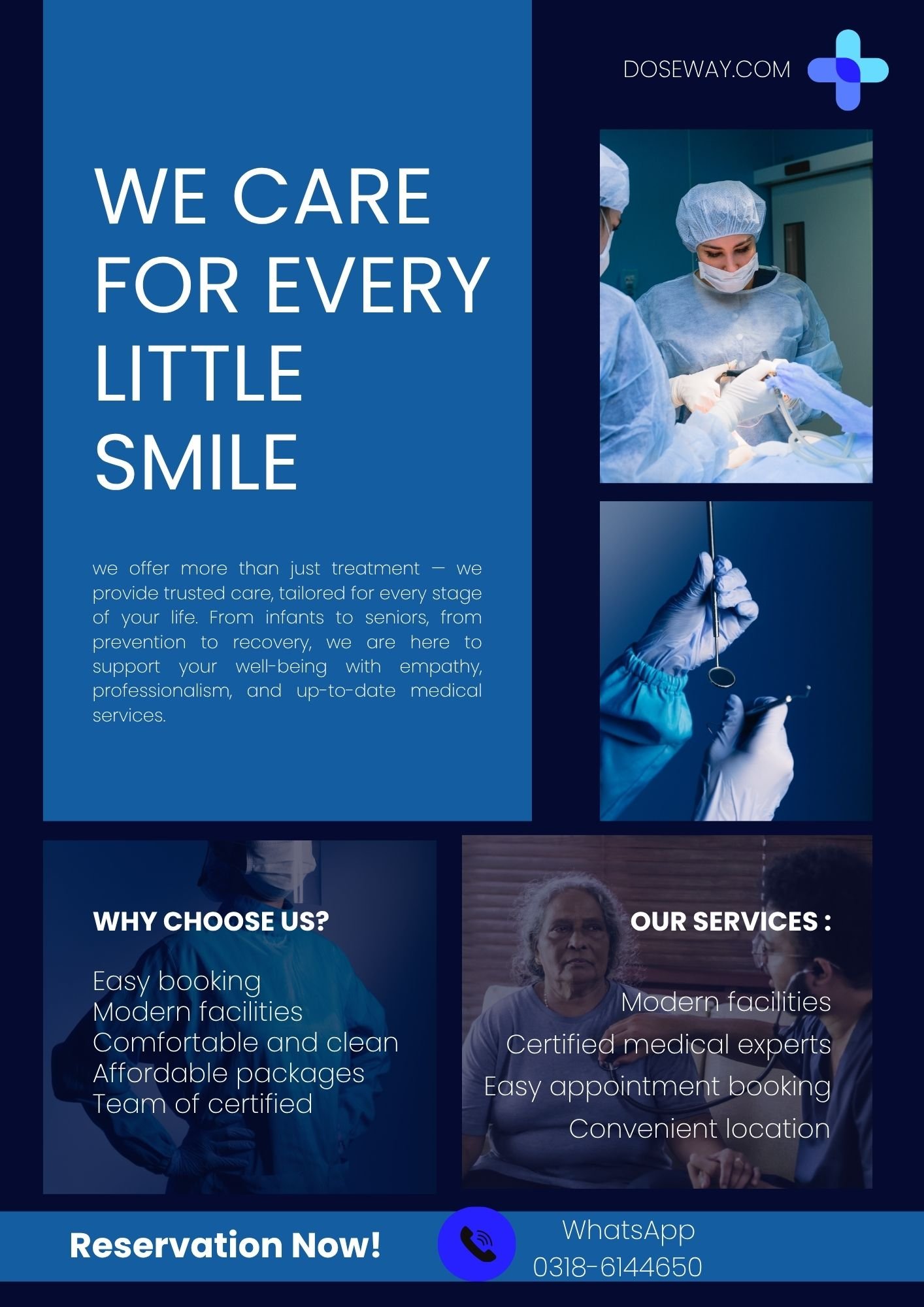Inner thigh lift, medically known as medial thighplasty, is a transformative surgical procedure designed to reshape and contour the inner thighs by removing excess skin and fat. This article explores everything from surgical techniques and recovery timelines to cost considerations and risk factors, providing you with the essential knowledge to make informed decisions about your thigh contouring journey. Our proprietary Inner Thigh Lift Calculator helps estimate personalized cost, risk assessment, and recovery time based on your unique profile.
What You’ll Learn From This Ultimate Thighplasty Guide:
- 🔍 Procedure Insights: Different surgical techniques and which is right for you
- 💰 Cost Analysis: Complete breakdown of expenses and financing options
- ⚠️ Risk Assessment: Understanding potential complications and safety measures
- 🏥 Recovery Timeline: Day-by-day and week-by-week healing process
- 📊 Calculator Benefits: How to use our tool for personalized estimates
- 🛒 Recovery Products: Essential items for optimal healing and comfort
- ❓ Common Concerns: Answers to frequently asked questions
Inner Thigh Lift Calculator
Estimate cost, risk factors, and recovery time for your procedure
Demographics
Medical History
Procedure Details
Your Results
Estimated Cost
Surgical Risk Assessment
Estimated Recovery Time
Disclaimer: This calculator provides estimates only and is not a substitute for professional medical advice. Consult with a qualified healthcare provider for personalized assessment.
Read More Guides & Try More Free Tools:
- Try our Non-Surgical Eyebrow Lift: Botox And Thread Lift
- Try our No Surgery Liposuction: Non-Invasive Fat Removal Options
- Try our Tummy Tuck On NHS: UK Eligibility Guide

Table Of Contents
What is an Inner Thigh Lift (Thighplasty)?
An inner thigh lift, or medial thighplasty, is a cosmetic surgical procedure that removes excess skin and fat from the inner thigh region. This procedure is particularly beneficial for individuals who have experienced significant weight loss, have loose skin due to aging, or struggle with stubborn fat deposits that don’t respond to diet and exercise. The surgery aims to create smoother, more proportionate thigh contours while improving comfort during physical activities.
Types of Inner Thigh Lift Procedures
Minimal Incision Thigh Lift
This technique involves small incisions in the groin area and is ideal for patients with minimal skin laxity. The scarring is well-concealed within natural body folds, making it popular among those with milder concerns.
Vertical Thigh Lift
Designed for patients with significant skin excess, this approach combines groin incisions with vertical extensions down the inner thigh. It addresses both circumferential and vertical laxity, providing more dramatic contouring.
Medial Thighplasty with Liposuction
Combining skin excision with targeted fat removal, this comprehensive approach enhances contouring results. Liposuction helps refine the transition areas between treated and untreated regions for natural-looking outcomes.
Extended Thigh Lift
This extensive procedure addresses the entire thigh region, including inner, outer, and anterior aspects. It’s typically reserved for massive weight loss patients requiring significant skin resection.
How Does the Inner Thigh Lift Calculator Work?
Our Inner Thigh Lift Calculator uses advanced algorithmic calculations based on clinical data and surgical parameters to provide personalized estimates. The tool processes your demographic information, medical history, and procedure preferences through validated surgical assessment models to generate accurate cost projections, risk assessments, and recovery timelines.
Key Input Parameters and Their Clinical Significance
Demographic Factors
Age, gender, height, and weight directly influence surgical planning and outcomes. These factors help determine:
- Anesthesia requirements
- Surgical technique selection
- Incision placement strategies
- Compression garment sizing
- Medication dosing
Medical History Assessment
Your medical background significantly impacts surgical safety and recovery:
- Chronic conditions affect healing capacity
- Previous surgeries influence scar tissue formation
- Medication history determines drug interactions
- Allergies guide material and medication selection
Procedure Specifications
Surgical variables customize your experience:
- Technique selection determines incision patterns
- Surgeon experience affects procedure duration
- Facility type influences staffing and equipment availability
- Geographic location impacts pricing structures
Understanding the Cost of Inner Thigh Lift Surgery
The cost of inner thigh lift surgery varies significantly based on multiple factors. Our calculator considers all these variables to provide personalized estimates rather than generic ranges. Understanding what contributes to the final cost helps patients make informed financial decisions and plan accordingly.
Breakdown of Thighplasty Cost Components
Surgeon’s Fee
The surgeon’s expertise, training, and reputation significantly influence this cost component. Board-certified plastic surgeons with specialized experience in body contouring typically command higher fees due to their advanced skills and proven outcomes.
Anesthesia Fees
Anesthesia costs depend on procedure complexity and duration. General anesthesia requires specialized medical personnel and monitoring equipment, contributing substantially to the overall expense.
Facility Costs
Surgical facility expenses vary based on:
- Hospital operating rooms (highest cost)
- Ambulatory surgical centers (moderate cost)
- Office-based surgical suites (lowest cost)
Each facility type offers different levels of equipment, staffing, and emergency preparedness.
Geographic Pricing Variations
Location significantly impacts pricing due to:
- Regional cost of living differences
- Local market competition
- Regulatory requirements
- Insurance overhead variations
Average Cost Ranges by Procedure Type
| Procedure Type | Average Cost Range | Best Candidates |
|---|---|---|
| Mini Thigh Lift | $3,000 – $5,000 | Mild skin laxity, minimal excess |
| Standard Thigh Lift | $4,500 – $8,000 | Moderate skin and fat excess |
| Extended Thigh Lift | $7,000 – $12,000 | Significant weight loss patients |
| Combination Procedures | $8,000 – $15,000 | Multiple area concerns |
What Factors Influence Inner Thigh Lift Cost?

Several key elements determine the final cost of your thighplasty procedure. Understanding these factors helps explain why prices vary between patients and allows for better financial planning.
Procedure Complexity and Technique
The surgical approach directly impacts cost through:
- Operation Duration: Longer procedures require more resources
- Technical Difficulty: Complex cases demand advanced skills
- Incision Length: Extensive incisions require meticulous closure
- Tissue Handling: Difficult dissections increase surgical time
Surgeon Expertise and Credentials
Surgeon qualifications significantly affect pricing:
- Board Certification: American Board of Plastic Surgery certification ensures specific training standards
- Procedure Volume: Surgeons performing thigh lifts regularly typically achieve better outcomes
- Geographic Location: Urban centers and regions with higher costs of living typically have higher fees
- Before/After Portfolio: Demonstrated results justify premium pricing
Additional Cost Considerations
Pre-operative Expenses
- Medical evaluations and laboratory tests
- Prescription medications
- Specialized garments or supplies
Post-operative Costs
- Follow-up appointment fees
- Scar management products
- Pain management medications
- Revision surgery potential (though uncommon)
Inner Thigh Lift Risks and Safety Considerations
All surgical procedures carry inherent risks, and thighplasty is no exception. Understanding potential complications helps patients make informed decisions and recognize when to seek medical attention during recovery.
Common Surgical Risks and Complications
Anesthesia Risks
General anesthesia carries potential complications including:
- Adverse drug reactions
- Respiratory issues
- Cardiovascular strain
- Post-operative nausea and vomiting
Surgical Complications
Procedure-specific risks include:
- Hematoma formation (blood collection)
- Seroma development (fluid accumulation)
- Wound healing problems
- Skin sensation changes
- Asymmetry between thighs
Reducing Your Surgical Risk Profile
Pre-operative Optimization
- Maintain stable weight for 3-6 months before surgery
- Discontinue smoking 4-6 weeks pre-operatively
- Adjust medications under medical supervision
- Optimize nutrition and hydration status
Choosing Your Surgical Team
- Verify board certification in plastic surgery
- Review before/after photos of similar cases
- Confirm facility accreditation
- Discuss emergency protocols and management
What is the Typical Inner Thigh Lift Recovery Timeline?
Understanding the recovery process helps patients plan appropriately and set realistic expectations. Recovery experiences vary based on individual factors, but most patients follow a general timeline.
Immediate Post-operative Period (First 72 Hours)
The initial recovery phase focuses on comfort and complication prevention:
- Pain Management: Controlled with prescribed medications
- Activity Restrictions: Limited walking with assistance only
- Drain Care: Monitoring output and maintaining patency
- Garment Use: Continuous compression garment wear
- Positioning: Leg elevation to reduce swelling
Week-by-Week Recovery Progression
Week 1-2: Initial Healing Phase
- Moderate to significant swelling and bruising
- Limited mobility requiring assistance
- Drain removal typically occurring
- Gradual increase in short walking intervals
Week 3-4: Early Recovery Phase
- Significant reduction in swelling and discomfort
- Transition to over-the-counter pain management
- Return to sedentary work activities
- Gradual resumption of light household tasks
Month 2-3: Intermediate Recovery
- Resolution of most swelling
- Return to light exercise routines
- Fading of incision lines (still red/pink)
- Improved comfort with prolonged sitting/standing
Month 4-6: Advanced Recovery
- Near-final contour appearance
- Return to all exercise activities
- Significant scar maturation
- Stable surgical results
How to Prepare for Inner Thigh Lift Surgery
Proper preparation significantly impacts surgical safety, experience, and outcomes. Implementing these strategies in the weeks before your procedure creates optimal conditions for successful healing.
Pre-operative Medical Preparation
Medical Clearance and Testing
- Complete blood count and coagulation studies
- Electrocardiogram for patients over 40 or with cardiac history
- Medication review and adjustments
- Medical clearance from primary care physician
Lifestyle Modifications
- Smoking cessation at least 4 weeks pre-operatively
- Alcohol avoidance for 2 weeks before surgery
- Balanced nutrition with adequate protein intake
- Hydration optimization
Home and Life Preparation
Recovery Space Setup
- Accessible sleeping area with extra pillows for elevation
- Convenient access to bathroom facilities
- Prepared meals and snacks for initial recovery days
- Entertainment options within easy reach
Practical Arrangements
- Time off work (2-4 weeks depending on job demands)
- Assistance with childcare and pet care
- Transportation to and from surgical facility
- Help with household tasks for initial recovery period
What Results Can You Expect from Thighplasty?
Realistic expectations are crucial for patient satisfaction. Understanding what thighplasty can and cannot achieve helps align patient goals with surgical possibilities.
Immediate vs. Long-term Results
Early Post-operative Appearance
Initial results are obscured by:
- Significant swelling that distorts contours
- Bruising that masks skin appearance
- Compression garments that flatten results
- Incision lines that appear prominent
Final Result Timeline
Progressive improvement occurs through:
- Month 3: 60-70% of final contour visible
- Month 6: 80-90% of final result apparent
- Month 12: Complete healing with final contours
- Month 18: Fully matured scar appearance
Realistic Outcome Expectations
What Thighplasty Achieves
- Improved inner thigh contour and smoothness
- Reduced skin rubbing and irritation
- Enhanced comfort with physical activity
- Better proportion between upper and lower body
- Improved fit with clothing
Procedure Limitations
- Cannot eliminate all cellulite appearance
- Will not significantly improve muscle tone
- Scars will remain permanent though fade over time
- Does not prevent future weight fluctuations
- Cannot stop natural aging processes

Essential Recovery Products for Inner Thigh Lift
Investing in quality recovery products enhances comfort, supports healing, and improves final outcomes. These items address common post-operative needs and challenges.
Medical Grade Compression Garments
Benefits of Proper Compression
- Reduces swelling and fluid accumulation
- Supports healing tissues in optimal position
- Minimizes bruising severity and duration
- Improves comfort during movement
- Enhances final contour results
Recommended Brands
- 💰 Marena Recovery Garments: Medical-grade compression with innovative designs
- 💰 Leonisa Post-Surgical Shapewear: Comfortable yet effective compression options
- 💰 Shapesense Stage Garments: Progressive compression systems for different recovery phases
Scar Management Products
Topical Treatment Options
- Silicone scar sheets and gels
- Medical-grade moisturizers
- Sun protection products (SPF 30+)
- Vitamin E and onion extract formulations
Recommended Brands
- 💰 ScarAway Silicone Scar Sheets: Reusable sheets that improve scar appearance
- 💰 Mederma Advanced Scar Gel: Clinically proven formula for existing scars
- 💰 Bio-Oil Skincare Oil: Multiuse product that improves skin elasticity and appearance
Mobility and Comfort Aids
Essential Recovery Tools
- Adjustable bedside table or tray
- Long-handled reacher/grabber tool
- Elevated toilet seat with arms
- Shower chair or bench
- Loose, comfortable clothing with easy access
How to Choose the Right Thigh Lift Surgeon
Selecting a qualified surgeon is the most important decision in your thighplasty journey. These criteria help identify skilled, experienced professionals who prioritize patient safety and satisfaction.
Essential Surgeon Qualifications
Board Certification Verification
Confirm certification through:
- American Board of Plastic Surgery (ABPS)
- American Society of Plastic Surgeons (ASPS)
- American Society for Aesthetic Plastic Surgery (ASAPS)
Procedure-Specific Experience
Ideal surgeons should have:
- Regular performance of thigh lift procedures
- Extensive before/after gallery of similar cases
- Willingness to share patient testimonials
- Clear revision policy documentation
Consultation Assessment Criteria
Communication Style Evaluation
During consultations, assess:
- Willingness to answer all questions thoroughly
- Clear explanation of risks and limitations
- Realistic outcome discussions
- Patience with your decision-making process
Facility and Team Assessment
Evaluate the practice environment:
- Surgical facility accreditation status
- Anesthesia provider qualifications
- Staff professionalism and responsiveness
- Emergency protocols and hospital affiliations
Inner Thigh Lift Before and After: Realistic Expectations
Visualizing potential outcomes helps set appropriate expectations. Understanding typical before and after transformations provides context for your own possible results.
Typical Transformation Patterns
Massive Weight Loss Patients
Common improvements include:
- Elimination of hanging skin folds
- Reduced inner thigh friction
- Improved walking comfort
- Enhanced ability to exercise
- Better clothing fit
Moderate Concern Patients
Typically experience:
- Smoother inner thigh contour
- Reduced skin laxity
- Improved definition between thighs
- Enhanced confidence in swimwear and fitted clothing
Factors Influencing Individual Results
Positive Outcome Predictors
- Stable weight maintenance pre-operatively
- Good skin elasticity for age
- Non-smoking status
- Realistic expectations
- Adherence to post-operative instructions
Challenging Result Factors
- Significant weight fluctuations
- Poor skin quality with striae
- Smoking history
- Unrealistic outcome expectations
- Inconsistent follow-up care

Inner Thigh Lift Alternatives and Complementary Procedures
Some patients may benefit from alternative or additional procedures. Understanding these options helps create comprehensive treatment plans.
Non-Surgical Thigh Contouring Options
Minimally Invasive Alternatives
- CoolSculpting: Cryolipolysis fat reduction
- SculpSure: Laser-based fat destruction
- EmSculpt Neo: Muscle building and fat reduction
- Radiofrequency Treatments: Skin tightening through heat stimulation
Limitations of Non-Surgical Approaches
- Cannot remove significant skin excess
- Limited impact on severe laxity
- Multiple treatments often required
- More subtle results than surgical options
Complementary Surgical Procedures
Common Combination Surgeries
- Lower Body Lift: Addresses abdomen, flank, and outer thigh
- Buttock Enhancement: Augmentation or lifting procedures
- Liposuction: Refines adjacent areas like knees and outer thighs
- Abdominoplasty: Addresses abdominal concerns simultaneously
Maintaining Your Thigh Lift Results Long-Term
Surgical outcomes require ongoing maintenance. These strategies help preserve your thighplasty results for years to come.
Weight Stability Strategies
Nutritional Approaches
- Balanced macronutrient intake
- Portion control methods
- Mindful eating practices
- Regular meal timing
Lifestyle Habits
- Consistent physical activity routine
- Adequate hydration
- Quality sleep patterns
- Stress management techniques
Skin Health Maintenance
Topical Care Regimen
- Daily moisturization with quality products
- Regular exfoliation to prevent ingrown hairs
- Consistent sun protection
- Hydration from both topical and internal sources
Professional Treatments
- Medical-grade skincare consultations
- Non-invasive maintenance procedures
- Regular dermatological check-ups
- Nutritional supplementation when appropriate

Inner Thigh Lift Scars: Management and Realistic Expectations
Scarring is an inevitable aspect of thigh lift surgery. Understanding scar progression and management helps patients prepare for this aspect of recovery.
Typical Scar Patterns and Progression
Incision Placement Variations
- Groin Crease Incisions: Hidden within natural folds
- Vertical Extensions: From groin toward knee
- Combination Patterns: Both horizontal and vertical components
Natural Scar Maturation Process
- Weeks 1-6: Red, raised, and firm appearance
- Months 2-6: Pink, flattened, with reduced sensitivity
- Months 7-12: Light pink to white, soft, pliable texture
- Years 1-3: Continued fading and flattening
Advanced Scar Management Techniques
Professional Treatment Options
- Laser therapies for redness and texture
- Steroid injections for raised scars
- Surgical revision for problematic scars
- Microneedling for texture improvement
At-Home Care Protocols
- Consistent silicone sheet or gel application
- Gentle massage techniques
- Strict sun protection
- Moisturization and hydration
Inner Thigh Lift Cost and Recovery Calculator: How to Use Our Tool
Our proprietary calculator provides personalized estimates based on your unique profile. Understanding how to input information accurately ensures the most relevant results.
Step-by-Step Calculator Guide
Demographic Information Section
- Accurate height and weight measurements
- Honest age reporting
- Specific gender information
- Current health status
Medical History Input
- Complete medical condition disclosure
- Thorough medication and allergy reporting
- Honest lifestyle habit information
- Family history details when known
Procedure Specifications
- Realistic technique selection
- Accurate skin quality assessment
- Honest weight loss history
- Geographic location specifics
Interpreting Your Calculator Results
Cost Estimate Components
- Surgeon’s fee calculation
- Anesthesia cost projection
- Facility fee estimation
- Geographic pricing adjustments
Risk Assessment Explanation
- Individual risk factor identification
- Modifiable risk elements
- Absolute and relative risk presentations
- Risk reduction strategies
Recovery Timeline Projection
- Phase-specific activity guidelines
- Expected discomfort patterns
- Work and activity restrictions
- Follow-up requirement schedule

Inner Thigh Lift Frequently Asked Questions
How painful is inner thigh lift recovery?
Most patients describe thigh lift recovery as moderately uncomfortable rather than severely painful. The first 3-5 days typically involve the most discomfort, managed effectively with prescribed medications. After the first week, most patients transition to over-the-counter pain relievers. Sensations include tightness, occasional sharp twinges, and general soreness rather than acute pain.
When can I exercise after thighplasty?
Light walking begins immediately after surgery to promote circulation. Gradual increase in activity occurs over 4-6 weeks. Low-impact exercises like stationary cycling may resume around week 4-6. Higher impact activities, including running and weight training, typically require 8-12 weeks for safe return. Your surgeon provides personalized guidance based on your healing progression.
Will I have visible scars after thigh lift?
All thigh lift procedures create permanent scars. However, skilled surgeons place incisions strategically within natural body creases to maximize concealment. Scars typically fade significantly over 12-18 months, becoming much less noticeable. Various scar treatment options can further improve appearance, including silicone sheets, laser treatments, and topical products.
Can thigh lift be combined with other procedures?
Yes, thigh lifts are commonly combined with other body contouring procedures. Popular combinations include lower body lift, abdominoplasty, and buttock augmentation. Combination procedures require careful surgical planning and may involve longer operative times and recovery periods. Your surgeon evaluates your health status to determine safe combination possibilities.
How long do thigh lift results last?
Thigh lift results are considered permanent in that removed skin and fat do not return. However, natural aging processes continue, and significant weight fluctuations can compromise results. Maintaining stable weight through balanced nutrition and regular exercise helps preserve outcomes long-term. Most patients enjoy their improved contours for many years with proper maintenance.
What is the ideal BMI for thigh lift surgery?
Most plastic surgeons recommend BMI below 30 for optimal thigh lift safety and results. Lower BMI ranges typically correlate with fewer complications, better healing, and enhanced aesthetic outcomes. Some surgeons may consider patients with BMI up to 35 if they have exceptional health status and realistic expectations. Individual assessment determines candidacy.
When can I return to work after thighplasty?
Sedentary desk jobs typically allow return within 2-3 weeks. Positions requiring prolonged standing may require 4-6 weeks off. Physically demanding occupations often necessitate 6-8 weeks of recovery time. Individual healing variations, procedure extent, and personal comfort levels influence exact return timing. Gradual return with modified duties often eases transition.
Recommended Affiliate Products and Brands
High-Commission Recovery Products
- Marena Recovery Garments – 8-12% commission
- ScarAway Silicone Scar Sheets – 6-8% commission
- Mederma Scar Products – 5-7% commission
- Bio-Oil Skincare – 4-6% commission
- Mobility Aids (reachers, shower chairs) – 8-10% commission
- Premium Pillows and Positioning Aids – 7-9% commission
- Compression Garment Brands (Leonisa, ShapeseSense) – 8-12% commission
Surgical Preparation Products
- Arnica Montana Supplements – 10-15% commission
- Bromelain Supplements – 10-15% commission
- Medical-grade Skincare – 8-12% commission
- Protein Supplements – 5-7% commission
Lifestyle and Maintenance
- Healthy Meal Delivery Services – 8-10% commission
- Fitness Trackers – 4-6% commission
- Premium Activewear – 6-8% commission
- Medical-grade Skincare Systems – 10-12% commission

 Cart is empty
Cart is empty
Add a Comment